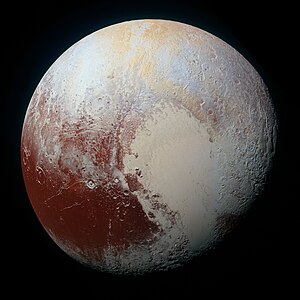Wikipedia:Main Page history/2018 July 14
From today's featured articleThe Somerset Levels are about 160,000 acres (650 km2) of coastal plains and wetlands in Somerset, South West England, running south from the Mendip Hills to the Blackdown Hills. About 70 per cent of the land is used as grassland and the rest is arable. Willow and teazel are grown commercially, and peat is extracted. Neolithic people exploited the resources of the reed swamps and started to construct wooden trackways, including the world's oldest known timber trackway, the Post Track, dating from the 3800s BC. Several settlements and hill forts were built on slightly raised land, including at Brent Knoll and Glastonbury. The Shapwick Hoard, 9,238 silver Roman coins discovered at the village of Shapwick, is the second largest Roman coin collection ever found in Britain. In 1685 the Battle of Sedgemoor ended the Monmouth Rebellion. The area has been extensively studied for its biodiversity and history, and has a growing tourism industry. (Full article...) Part of the Physical geography of Somerset series, one of Wikipedia's featured topics.
Recently featured:
Did you know...
|
In the news
On this dayJuly 14: Bastille Day in France (1789); Festino of Saint Rosalia begins in Palermo, Italy  Storming of the Bastille by Jean-Pierre Houël
James O'Hara, 2nd Baron Tyrawley (d. 1774) · Kate M. Gordon (b. 1861) · Alphonse Mucha (d. 1939) |
Today's featured picture

|
Pluto is a dwarf planet in the Kuiper belt, a ring of bodies beyond Neptune. Discovered by Clyde Tombaugh in 1930, Pluto was originally considered to be the ninth planet from the Sun. Following the discovery of several objects of similar size in the Kuiper belt, its status as a planet was questioned, and in 2006 the International Astronomical Union (IAU) gave a definition of the term "planet" that excluded Pluto. The largest and second-most-massive known dwarf planet in the Solar System, Pluto is primarily made of ice and rock. It is relatively small, with a moderately eccentric and inclined orbit. This photograph of Pluto is a composite of four near-true color images taken by the New Horizons spacecraft in 2015. The most prominent feature in the image, the bright, youthful, nitrogen ice plains of Sputnik Planitia, the left lobe of heart-shaped Tombaugh Regio, is at right center. This contrasts with the darker, more cratered terrain of Cthulhu Macula at lower left. Photograph: NASA / Johns Hopkins University Applied Physics Laboratory / Southwest Research Institute
Recently featured:
|
Other areas of Wikipedia
- Community portal – Bulletin board, projects, resources and activities covering a wide range of Wikipedia areas.
- Help desk – Ask questions about using Wikipedia.
- Local embassy – For Wikipedia-related communication in languages other than English.
- Reference desk – Serving as virtual librarians, Wikipedia volunteers tackle your questions on a wide range of subjects.
- Site news – Announcements, updates, articles and press releases on Wikipedia and the Wikimedia Foundation.
- Village pump – For discussions about Wikipedia itself, including areas for technical issues and policies.
Wikipedia's sister projects
Wikipedia is hosted by the Wikimedia Foundation, a non-profit organization that also hosts a range of other projects:
| |
Commons Free media repository |
|
MediaWiki Wiki software development |
|
Meta-Wiki Wikimedia project coordination |
| |
Wikibooks Free textbooks and manuals |
|
Wikidata Free knowledge base |
|
Wikinews Free-content news |
| |
Wikiquote Collection of quotations |
|
Wikisource Free-content library |
|
Wikispecies Directory of species |
| |
Wikiversity Free learning materials and activities |
|
Wikivoyage Free travel guide |
|
Wiktionary Dictionary and thesaurus |



